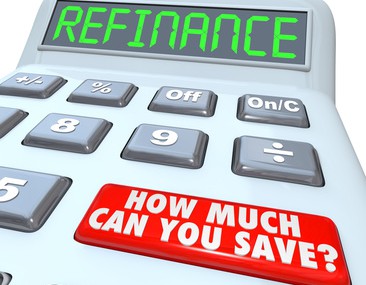
by admin | Bankruptcy, Consumer Proposal, Credit Counseling, Credit Repair
Credit world is a risky world. You need to be careful with your moves, as they are all recorded and can be used against you when necessary. Your bad credit habits and credit mistakes become a huge problem, if not addressed at the right time.
If you are new to the credit system or simply do not have the habit of maintaining your cash wisely, it can be an unfavorable situation for you. Is it never too late to learn? No, not in the credit world! The sooner you learn what credit mistakes you need to avoid, the sooner you will arrive at the safe side of the shore.
Not organizing your expenses and bills
As we said, everything is recorded and reported in the credit world. Your credit history matters the most, and you don’t want anything to stain it. However, if you are not habitual of being on time, you will probably end up with a bad record.
Make sure that you pay all your bills on time and separate your expenses so nothing becomes an obstacle in your next payment. There are many services available online that allow you to arrange your bills and expenses accordingly, with timers and calendars and calculate the amount for every payment. Use them and do not make the mistake of being late. Time is money here – literally!
Being ignorant to the interest charges and rates
It is not wise to not be aware of how much interest you are being charged on every transaction you make and at what rate. Whenever you go for getting a credit card, you must make sure the rates you are being charged, so you can compare it with the other options you have. In addition, it also helps when you are taking a loan. You would not want to be stuck in a loan that charges more interest rate than the other option you could have chosen.
Keep your credit limit down
It is like not being given enough money in hand, just so you will not spend it all at once. What happens is, when you know you have a greater credit limit, you are tempted to make more purchases, and that too recklessly, with a hope that you will somehow deal with it later. Do not do that. Do not fall into the trap of credit card companies, which lure you in by offering higher credit limit.
Giving your credit card to someone else to use
Trusting someone with your credit card is actually a stupid and risky thing do. When you lend your credit card to someone to use, they will make purchases that you will not have any control over. They might not be aware of the interest charges and the rates that comes with each type of transaction. All of this combined will become a problem for you, and if they make any purchase that are illegal, it is you who will have to bear the consequences.

by admin | Uncategorized
When we think of credit scores, the first thing that comes to our mind is how will it impact our access to lines of credit. However, that is not all that your credit score accounts for.
Your banks and financing companies are not the only ones who look into your credit history and dig up your reports. There are more people interested in your reputation in the credit world. Whether you are opening a retail account, renting an apartment, or even having a car financed, our credit score will always be at the forefront here.
Your credit score is more than a three-digit number. It determines the course of your life in many ways. Here are a few ways in which a poor credit score can be an issue for you;
You May Not Get The House You Desire
Your credit score can be an issue when the time comes for you to buy or rent your apartment or a house. When renting a house, the first thing the house owner sees is your income, so he can judge whether you would be able to really afford it or not.
The second consideration is your credit score! A house owner would not want to rent out to someone who does not have a proven track record for timely payments. So yes, your credit history and your credit score matters here.
You Don’t Get Your Loans Approved
Whether it is a student loan, or a business loan or even a mortgage, if you have a bad credit score, you are less likely to be approved as your credit score would indicate irresponsibility when it comes to making payments. It is not that you will not get the loan. Maybe you will. It is not entirely off the table for you. However, you will not be in their good books, which is why they will charge you higher than usual interest rates just in case.
It Affects Your Bills
You may not have thought about your credit score affecting something as trivial as buying things. But it does. The purchases you make, your monthly subscription, your club memberships, things you buy online, they all will probably charge you higher prices just to make sure they don’t face loss at your hand in case you can’t make the payment.
Your Next Job Might Not Be As Easy To Come
It is not a common practice in every state, but research shows that almost 46% of companies look into the candidate’s credit reports while considering hiring them. It is to make sure that you will not be likely involved in any kind of fraudulent activity, any embezzlement, or any property theft.
Your credit score has the power to affect even the most trivial aspects of your life. A bad credit score is always an issue. Over time it has somehow become the standard to measure a person’s credibility not just limited to banking but anywhere in life.

by admin | Bankruptcy, Credit Counseling
Bygones are not bygones in the world of banking and finance. What you do in the past, always comes around and determines the course of the future for you. In the world of credit, your worth is determined by a magic number called a Credit score. This is a mathematical way of expressing the creditworthiness of a person who is applying for credit approval. A credit score is determined by taking five elements into consideration.
- Amount you owe
- Length of time you have been using credit
- The credit mix you have
- New credit accounts you open
- Payment history
Every element has a different weightage when it comes to evaluating your credit score. However, your credit history takes the big chunk of it and has the most significant impact.
The first thing a creditor looks at is your credit history, to get an idea of whether you are good at keeping up your end of the bargain or not. Whether you made the payment at a time or not.
The type of accounts, which the creditors consider when checking your credit history, are;
- Primarily your credit card.
- The retail accounts you have.
- All the installments that are due every month including your car installment or any appliance you got on installments. And how regularly you pay them.
- Your history with other financing companies.
- Your mortgage payments history.
Your credit history is like a report card that a creditor sees. If he sees that you have made late payments, it will not immediately affect your score but if there are late payments for consecutive months, you will have to face some consequences and those consequences will then have an affect your credit score.
First, you will be charged with late credit fee. Then your interest rate will be increased. That increased interest rate is never a good sign. It shows that they have reservations when it comes to trusting you with credit. It will also make it more difficult for you to stick to credit then because it will become more expensive and therefore increase the risk of late payments or no payments at all. This stays on your report for a significant amount of time, maximum for seven years.
Other than this your credit score is also negatively affected by any foreclosures you have against you, any lawsuits that were filed against you, wage garnishments, or if someone has withheld any of your property till the time you pay them off. These all factors are also taken into account including bankruptcy in any form as well.
Credit history constitutes 35% of your credit score, thus a good credit history guarantees that you have a good credit score and more options of credit available to you. A low credit score lowers your credibility as it implies the presence of unfavorable information on your credit report.






